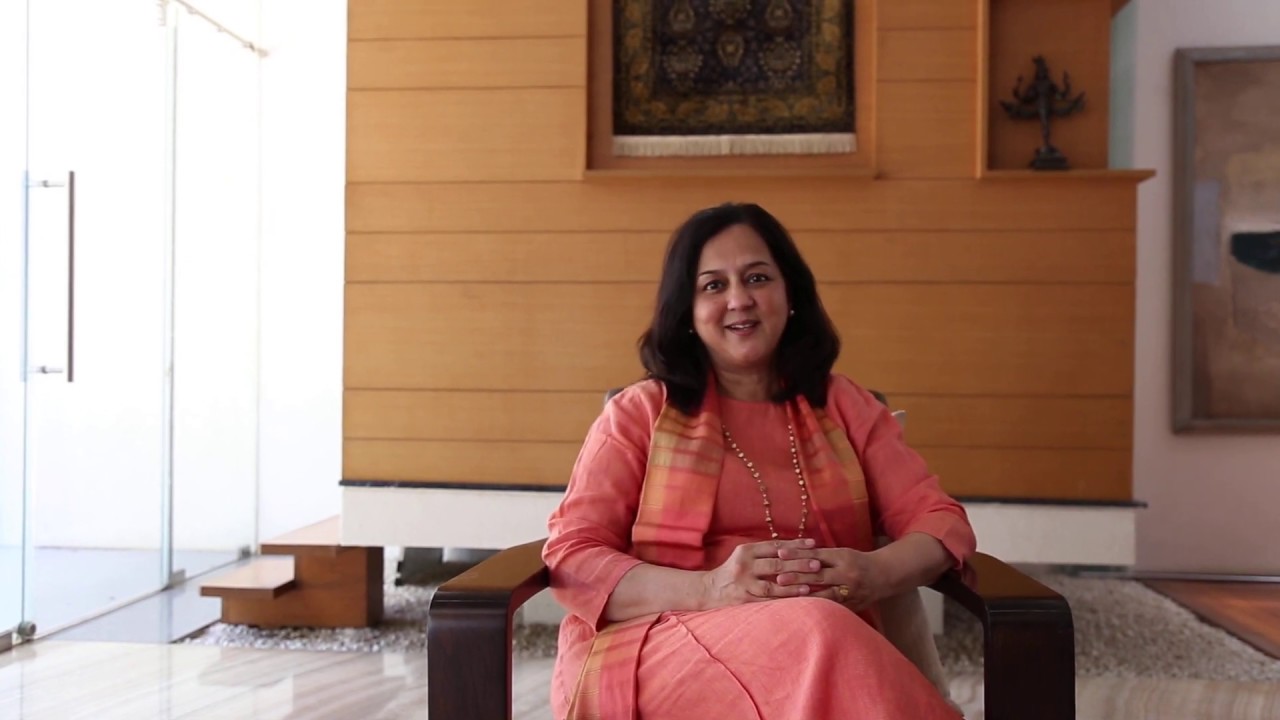Rohini Nilekani: Digital Dependencies

This is an edited version of Rohini Nilekani’s comments on the “Digital Dependencies” panel at Digital Impact Mumbai Conference presented by the Stanford PACS on Feb 7, 2018. The panel discussion on “Digital Dependencies” was conducted by Lucy Bernholz, Director, Digital Civil Society Lab, Stanford Center on Philanthropy and Civil Society. They discussed ways that digital data and infrastructure create new possibilities for working across sectors and the new demands of these relationships – including governance challenges, challenges to the social contract, and the need for new institutional capacities.
I’m so glad this conference is happening because it’s a very critical question that we are discussing about digital dependencies. India’s very young population is going to mature in this new digital age, and I think it opens up questions for society. And especially for civil society and how it is going to react and create a whole new era of functioning in a democracy. I think from what I’ve seen of India’s civil society organizations, some of them have quickly learnt and joined this digital universe very effectively, but the bulk of the organizations probably are just waking up to its immense potential. And there are some organizations that are almost technophobic, and I think we need to address the fears that some of them have about participating in a digital universe that is controlled by large corporations or perhaps they fear surveillance by the government. So how do we bring them to the discourse table?
One of the things I do believe is that the same technologies that allow for surveillance equally allow for participation and sousveillance, which means looking at power structures from below. We really need to see how we can employ that potential in civil society’s work. I think that in the continuum of Samaaj, Bazaar, and Sarkar, i.e. society, the markets, and the state, it is going to be very important to understand that we can not hide too much from this digital world and therefore how can civil society organizations also act as a check and balance on this potential of technology to amplify everything, both bad and good? And how can we think of a new design for civil society itself?
Let me give you a small example from the work that we have been doing in Arghyam, which is the foundation I set up for water and sanitation back in 2005. When we developed the India Water Portal, which was envisaged as a knowledge platform on water, it was born in an area where some of these fascinating new technologies were not being deployed. So it is sort of an old fashion idea of a digital presence. And you can’t take something that was designed then and retrofit it. So we now have to rethink it completely.
On the other hand, EkStep, which is the learning platform that my husband Nandan, Shankar Maruwada, and I set up two and a half years ago, is already born in an age where so many digital technologies have converged and combined. So, the way this organization is born is very different. And we have had a sharp learning curve from our earlier work, my husband and I. So, I think this organization is developed as a new child of the digital age and incorporates a value structure which I believe is dear to my heart and very important to articulate — that this platform will be open, it will not hide behind proprietary walls, it will have many shareable structures. It has simple-to-use toolkits. It allows many actors to talk to each other. It is mobile-friendly.
We are talking about things like offline internet for those with poor access to the internet. We are also talking about creating three layers, a shared digital infrastructure, and toolkits co-created by many of the actors in that sector, and then an amplification layer. So, I think there’s so much tremendous potential for civil society organizations to scale their work, to find new partners across geographies, to de-risk from any local conditions, and to pull in the power of collaboration and co-creation. I hope we can enable India’s thriving civil society to participate more fully in this inevitable digital universe.
